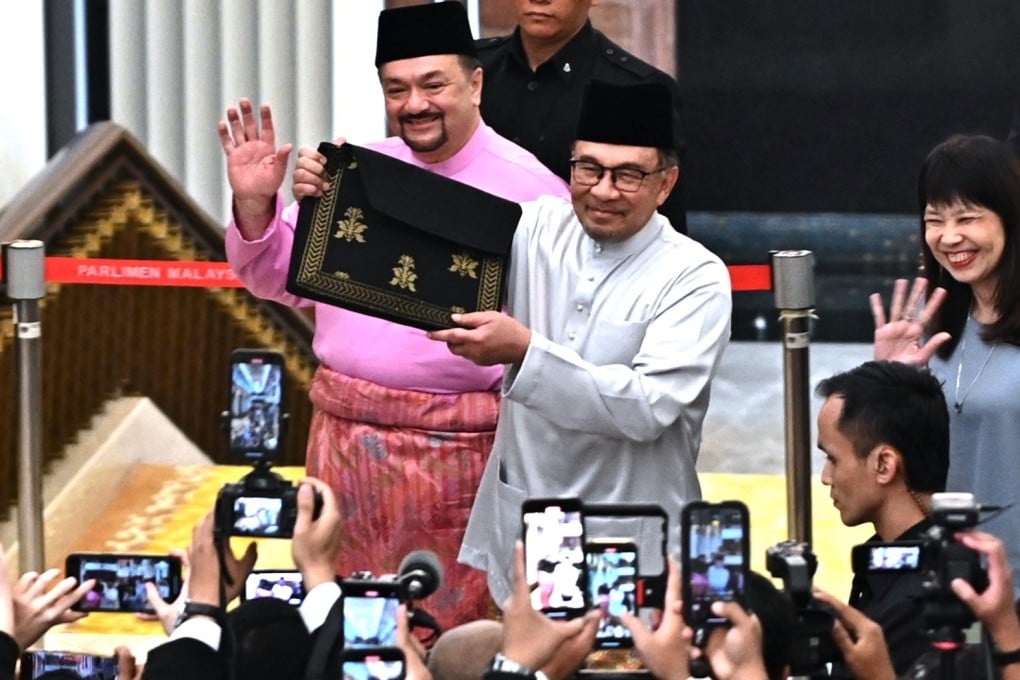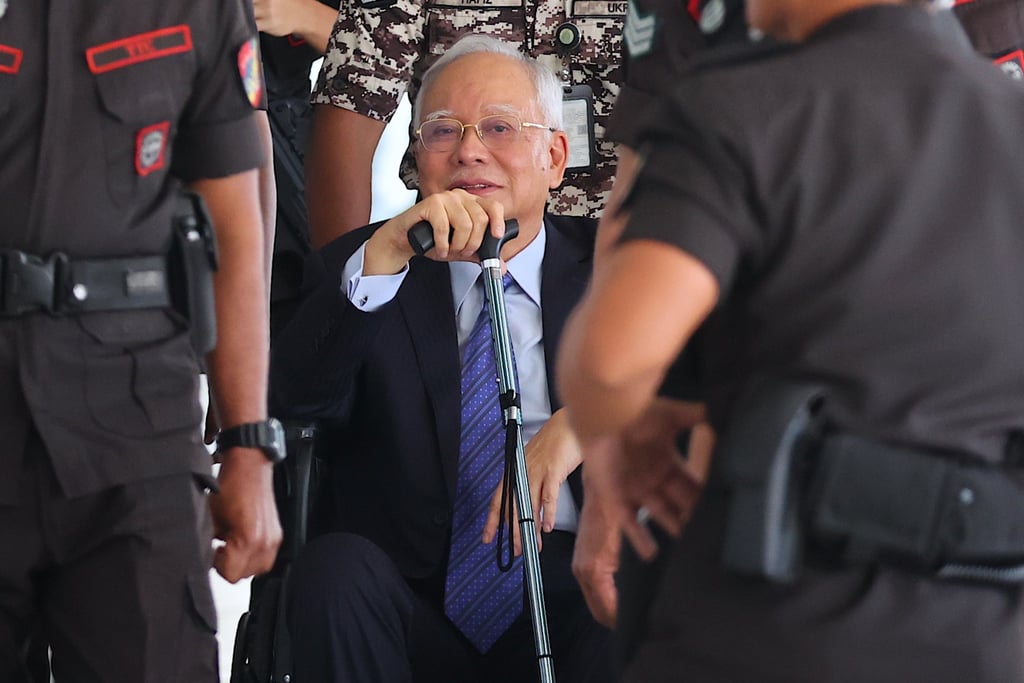Advertisement
Malaysia’s budget surprise on house arrest fuels Najib Razak release speculation
Critics accuse Anwar Ibrahim’s government of slipping plans for a new law into Friday’s budget that could benefit jailed ex-PM Najib Razak
Reading Time:2 minutes
Why you can trust SCMP
1

A government proposal to introduce home detention for some convicts has raised eyebrows in Malaysia, with many speculating that its inclusion in Friday’s budget announcement was a ploy to pave the way for the early release of jailed ex-prime minister Najib Razak.
Advertisement
A line outlining plans for a new law that would allow home detention “as an alternative for certain offences” was included in the government’s official published version of Prime Minister Anwar Ibrahim’s budget speech.
Anwar did not mention the proposal during his two-and-a-half-hour address, however, fuelling speculation about why such a critical security and prison reform issue was seemingly slipped into the budget.
“Which offences would warrant house arrest? Are corruption and criminal breach of trust suitable for house arrest?” asked Hassan Abdul Karim, an MP from Anwar’s People’s Justice Party (PKR), apparently alluding to the deeply divisive Najib’s criminal convictions.

Najib is currently serving time behind bars for embezzling millions from a former unit of the scandal-ridden 1Malaysia Development Berhad (1MDB). He is seeking a court order that would enforce a document he claims was signed by the former king, allowing him to exchange his prison stay for home confinement.
Advertisement
Despite his conviction, Najib remains politically influential, asserting that Sultan Abdullah Ahmad Shah approved the house arrest order separately, after a decree that halved the former prime minister’s 12-year sentence in a final act of his five-year tenure as Malaysia’s monarch.

Advertisement